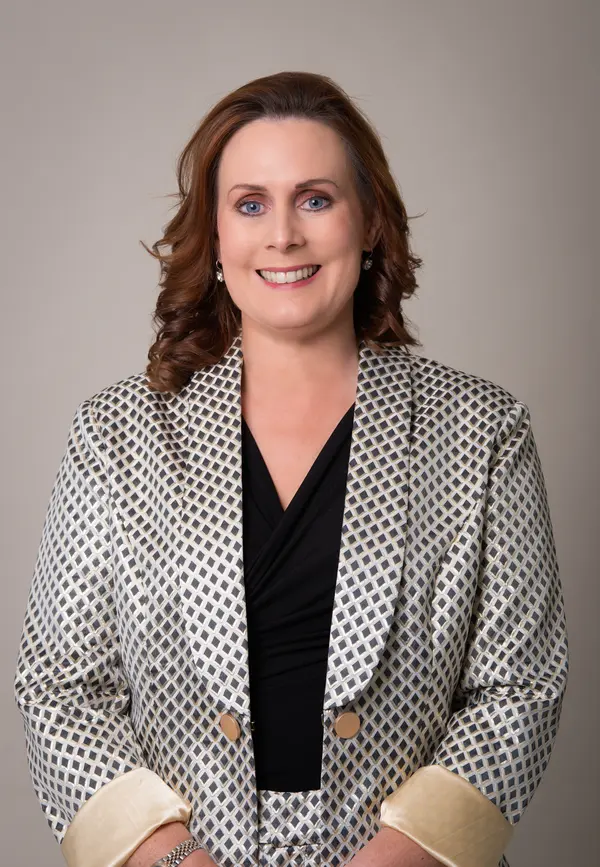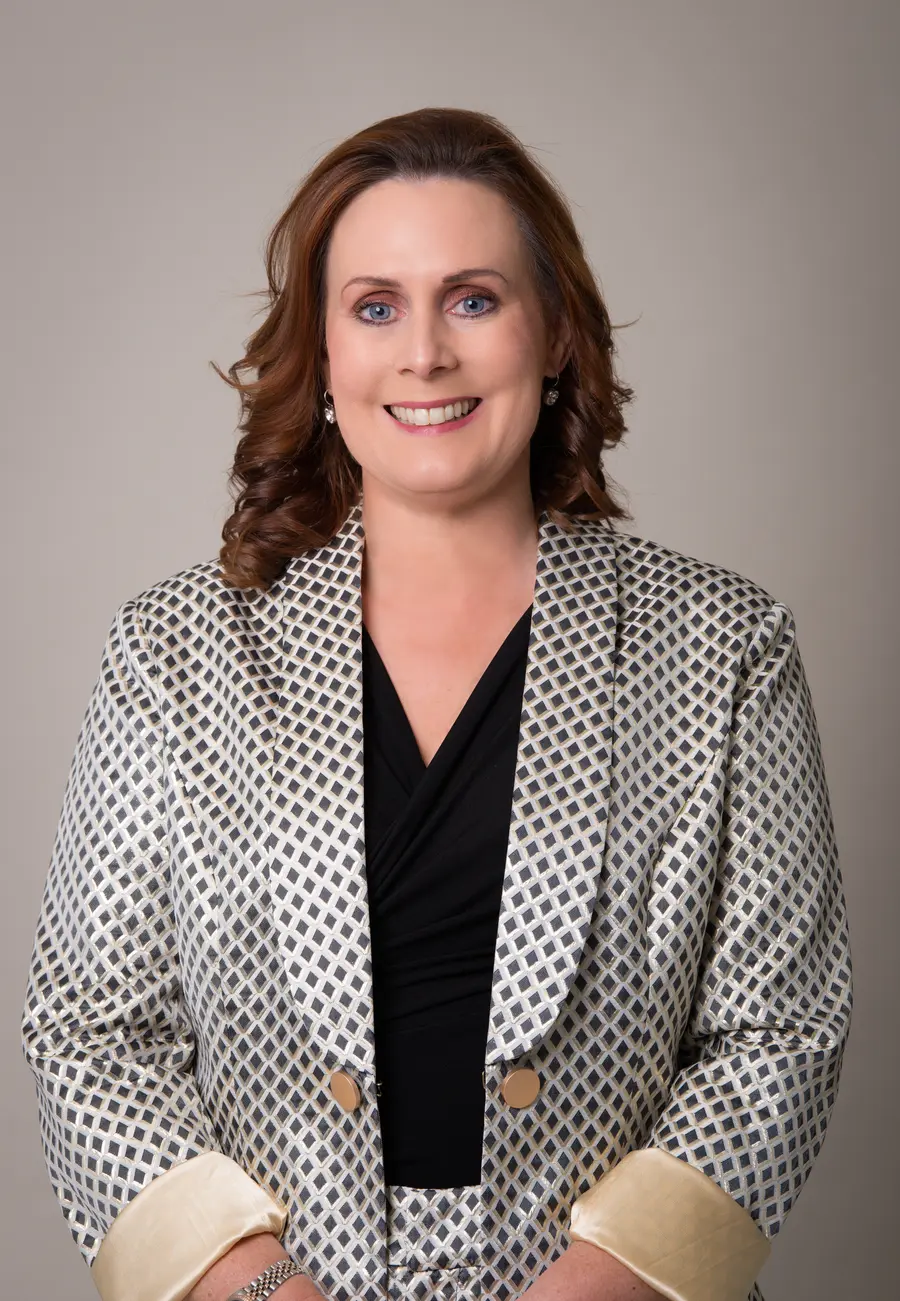
Caroline Reidy is Head of HR Solutions at NFP and a HR and Employment Law Specialist. Caroline sold her company, The HR Suite, in 2025 to NFP, an AON Company, and as of 17th November 2025 The HR Suite officially rebranded to NFP.
Caroline is a former member of the Low Pay Commission and is also an adjudicator in the Workplace Relations Commission. Caroline is also an independent expert observer appointed by the European Parliament to the Board of Eurofound. Caroline is also on the Board of the Design and Craft Council Ireland and is a Governor on the Board of Munster Technology University.
She has also completed a Master's in Human Resources at the University of Limerick, and she is CIPD accredited as well as being a trained mediator. Caroline completed her diploma in Company direction from the IOD with a Distinction and completed her assessment to become a Chartered Director of the IOD. Caroline had worked across various areas of HR for over 25 years in Kerry Group and in the retail and hospitality sector, where she was the Operations and HR Director of the Garvey Group prior to setting up The HR Suite in 2009.
She has also written 2 books, has done a TEDx and is a regular conference speaker and contributor to national media and is recognised as a thought leader in the area of HR and employment law. Caroline also mentored female entrepreneurs on the Acorns Programme. Originally from Ballyheigue, Co. Kerry, now living in Dublin, is very proud of her Kerry roots.
For many women, maternity leave is one of the most transformative and sometimes, exhausting chapters of their lives. When the time comes to return to work, that transition can be challenging and the employee may not always receive support and inclusion.
This can begin prior to the return to work when the employee finds themselves chasing managers for clarity on return dates, negotiating flexible working requests and sometimes returning to the workplace with no reintegration plan in place. The result can lead to feelings of isolation, disconnection, and in many cases, a slow erosion of confidence at a time when, in particular, new mothers may need support the most.
Employers and businesses with good practices in place for helping employees return from maternity leave significantly ease this burden on new parents. Research studies show that these organisations often benefit from higher levels of job satisfaction, loyalty, retention as well as strong levels of engagement, and healthier workplace cultures.
Despite progress in policy and awareness, the lived experience of many women shows that organisations can be slow to implement good practices around this crucial aspect of a mother’s employment.
The reality on return to work from maternity leave finds these employees may be juggling sleep deprivation, childcare arrangements, breastfeeding schedules, along with the emotional weight of leaving her baby.
In addition to that, employees may also find that the work environment may have changes, and they struggle to get up to speed on everything. Systems may have changed, new colleagues may have joined, even managers may have moved roles. Without a clear support plan, the employee can feel as though she is starting in a new job, just without the benefit of induction.
Supporting employee’s post-maternity leave is essential and therefore it is important that companies have strong family-supportive policies. With good policies in place organisations can benefit from having well gender-balanced leadership therefore enjoying higher levels of talent attraction and retention.
In relation to the process, having an open door policy that is welcoming to employees returning from all family related leaves is important. It helps to have a clear process for checking in with the employee confirming return dates and taking requests for other leaves into consideration.
It is of course difficult for businesses to obtain cover for maternity leave due to the short term nature and having the correct process in policy aligned with the company policy will allow the employer to plan in advance and help smooth transitions and handover between em
ployees going on leave and new or existing resources stepping in to provide the cover.
As maternity leave is protected, employees accrue annual leave and retain their entitlement to public holiday benefits. It is therefore important that employers are careful not to make any changes to an employee’s terms and conditions of employment during the course of maternity leave. Further to this, employees returning from maternity leave are entitled to return to the same role. Any changes to this should be discussed in advance with your hr team.
The return from maternity leave and the reintegration should ideally be a structured process.
Some of the key elements may include:
Early and proactive communication
Employers should reach out well before the return date to confirm arrangements, discuss preferences, and answer questions. This may include providing information and the company policies on Parents Leave and Parental Leave as well as keeping employees informed of annual leave accrual. This approach of planning ahead also benefits the organisation to minimise disruption.
A personalised reintegration plan
Just as new hires receive onboarding, returning mothers should have a re-onboarding plan. This might include refresher training, key meetings, and time to ease back into workload.
Flexible and creative working arrangements
Flexible working requests should be met with openness, focusing on solutions rather than barriers. Trial periods can help test arrangements. This also allows the organisation to review what is reasonable and what aligns with business requirements. Having a clear robust policy in place for each leave type is essential.
Manager and Team engagement
Managers should schedule structured catchups to update the employee and listen to any concerns they may have. Teams should also play a role in welcoming returning colleagues, and this will often happen naturally in organisations where managers lead by example and consistently promote these habits and behaviours in the workplace.
Peer and mentor support
Access to parent networks or mentors can reduce isolation and ensure women continue to progress in their careers. Reminding employees of supports such as the EAP Employee Assistance Programme is also important.
Cultural leadership
Senior leaders should seek to normalise family-friendly policies, support parents openly, and challenge bias. Culture is shaped as much by behaviour as by policy.
For more information on the HR Suite:
Telephone: (066)7102887 (Head Office)
Visit https://thehrsuite.com
Continue reading
We help hundreds of people like you understand how the latest changes in employment law impact your business.
Please log in to view the full article.
What you'll get:
- Help understand the ramifications of each important case from NI, GB and Europe
- Ensure your organisation's policies and procedures are fully compliant with NI law
- 24/7 access to all the content in the Legal Island Vault for research case law and HR issues
- Receive free preliminary advice on workplace issues from the employment team
Already a subscriber? Log in now or start a free trial
